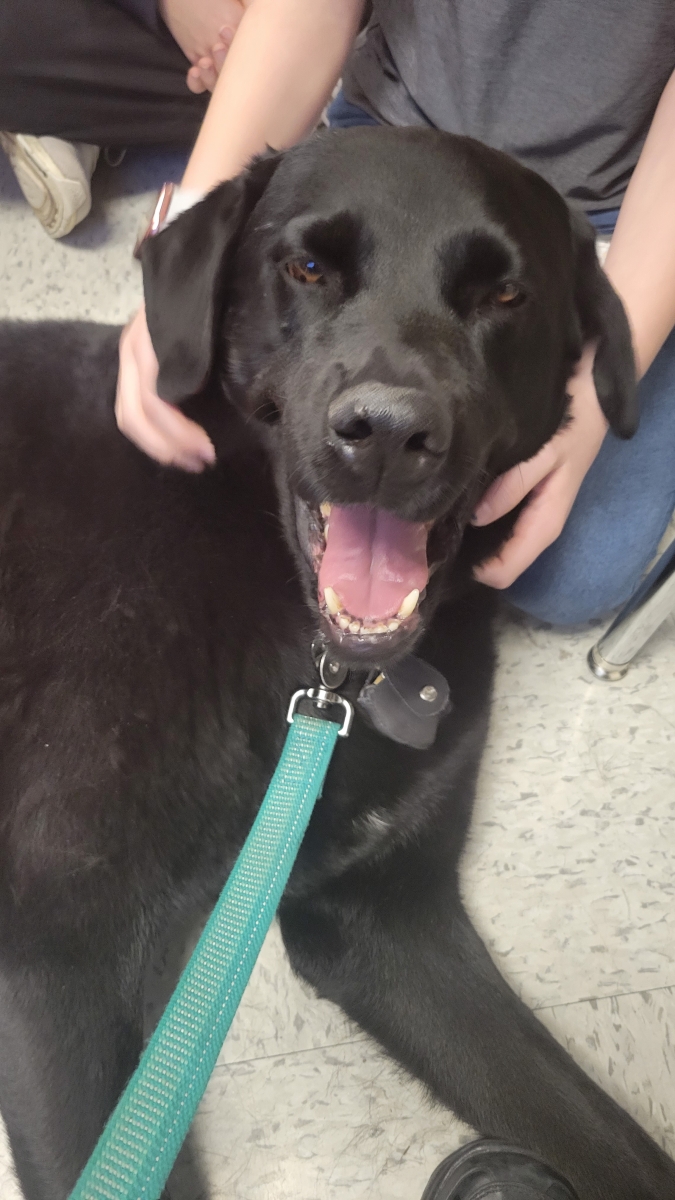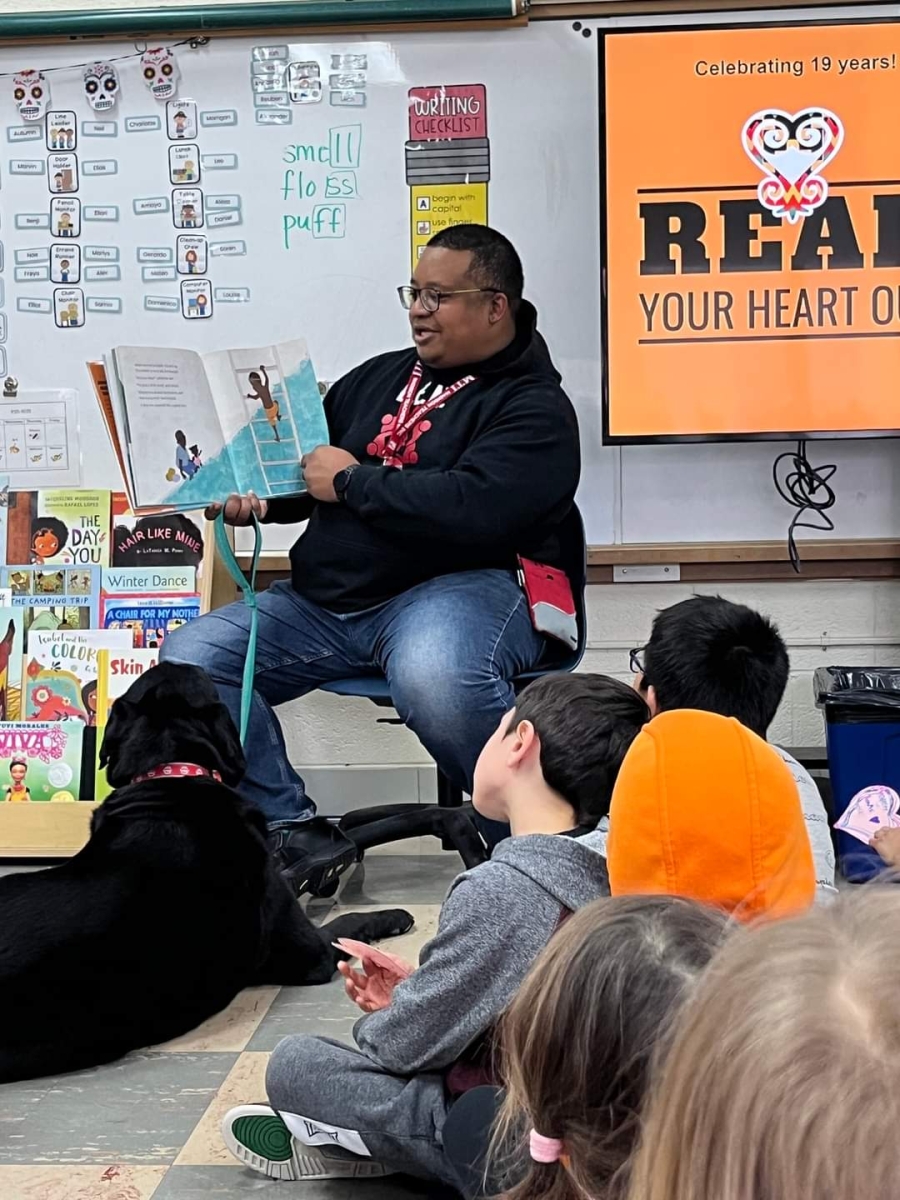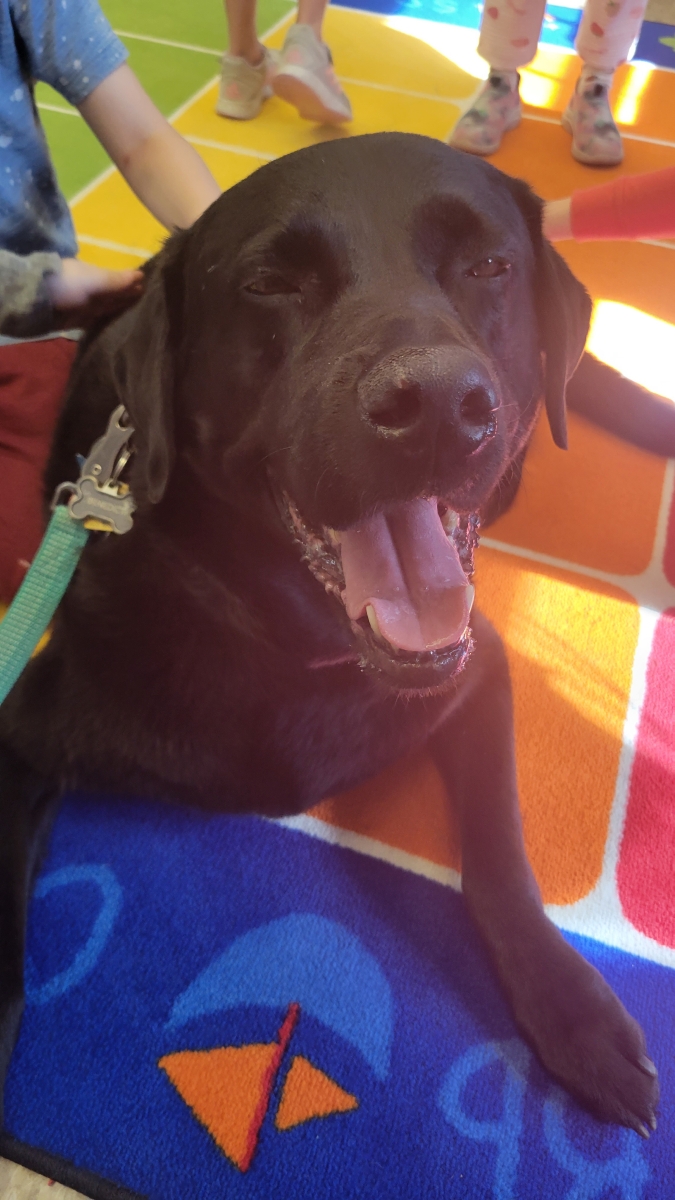
As told by Michael Jones, special education teacher and behavior interventionist in the Madison Metropolitan School District.
Name: Benedict Batman Jones
Age: 9 Years
Breed: Black Lab/Rottweiler
Motto: I love you!
Temperament: Sweet, submissive -- Benny is extremely calm and approaches everyone for affection and attention. Even among our three dogs, he's the calmest and the peacemaker in the pack. He's also the leader and gently gets the other two dogs to follow his lead.
Around 2013-14, as school shootings like Sandy Hook were impacting our society, I remembered seeing stories about people who'd bring their dogs to schools and hospitals after traumatic experiences like shootings or earthquakes or hurricanes. I also saw stories where they'd bring dogs to schools and libraries to help reluctant readers to read with an animal that would help them feel less stressed or anxious. Being a special education teacher and behavior interventionist, I connected these examples with my schools. At the time, I also had a Golden Retriever named Molly (who passed away last September) who absolutely loved people. So, I began looking into training to see if I could bring her to my middle school, where I had just started working.
It turns out that there's not that much special training after the standard obedience classes. There's a class called the "AKC Canine Good Citizen" that covers a lot of the primary requirements — mainly, making sure both the handler and dog are able to show safe behaviors in stressful environments (like a crowded school hallway or a busy hospital). Once we passed that class, we worked with two groups that provide licensure for pet therapy (Pet Partners on the national level and Dogs on Call at the local level). They have their own class for handlers to meet their standards and then we take an in-person assessment where the pet is put through various exercises to assess their behavior and ability to follow their handler's commands. If you pass that assessment, you get a two-year renewable license. I've been able to get both Molly and Benny licensed, and I'm currently working on my middle dog, Cleo, to get her license too.
The biggest challenge honestly is to make sure my dog is safe and the people we encounter feel safe. Not everyone loves dogs dues to allergies or past experiences. But, I've been lucky enough to see young people connect with Benny and work on their fears. At the elementary, middle, and high school levels, I've had students tell me that they haven't gone near a dog in years but approached Benny because he seemed friendlier.

Benny is a Jack-of-all-trades
Believe it or not, this is a short list of things that Benny has done:
- Helped highly-escalated students de-escalate through proximity and petting. This just happened at an elementary school we visited two weeks ago, where Benny helped an Autistic child regulate themselves with proximity.
- Helped high school students lower their stress levels before the ACT. We visited the morning of the test and multiple juniors came up and said how grateful they were that they could pet him for a couple minutes before their big exam.
- Supported students at all three levels after violent events in the community or at schools where we come and students can process what happened while being with Benny. Student feedback is usually that it's easier to tell the dog what's on their mind rather than me or another adult.
- Helped elementary and middle school students read or self-regulate in the classroom so they can stay in the room with their peers instead of relying on leaving the classroom.
- Allowed students to read to him to lower anxiety and stress around the action.
Long-term, I've received messages from past students who had one-on-one sessions with my therapy dogs about how they were able to relax and work with other staffers on building their coping mechanisms and skills thanks to seeing the dogs on a weekly basis. They're now at post-secondary schools or have jobs in the community and still comment on the dogs' instagram how much they love them. That shows connection!
There are other successes I'm probably missing, but the overall message I'd like to share is that schools are supposed to be like homes in that they provide safety, comfort, and consistency. Bringing therapy pets into such spaces are not a panacea, but they do have a valuable place in making a school a little bit better of a place to be.

READ MORE ABOUT WISCONSIN'S SCHOOL SUPPORT DOGS: